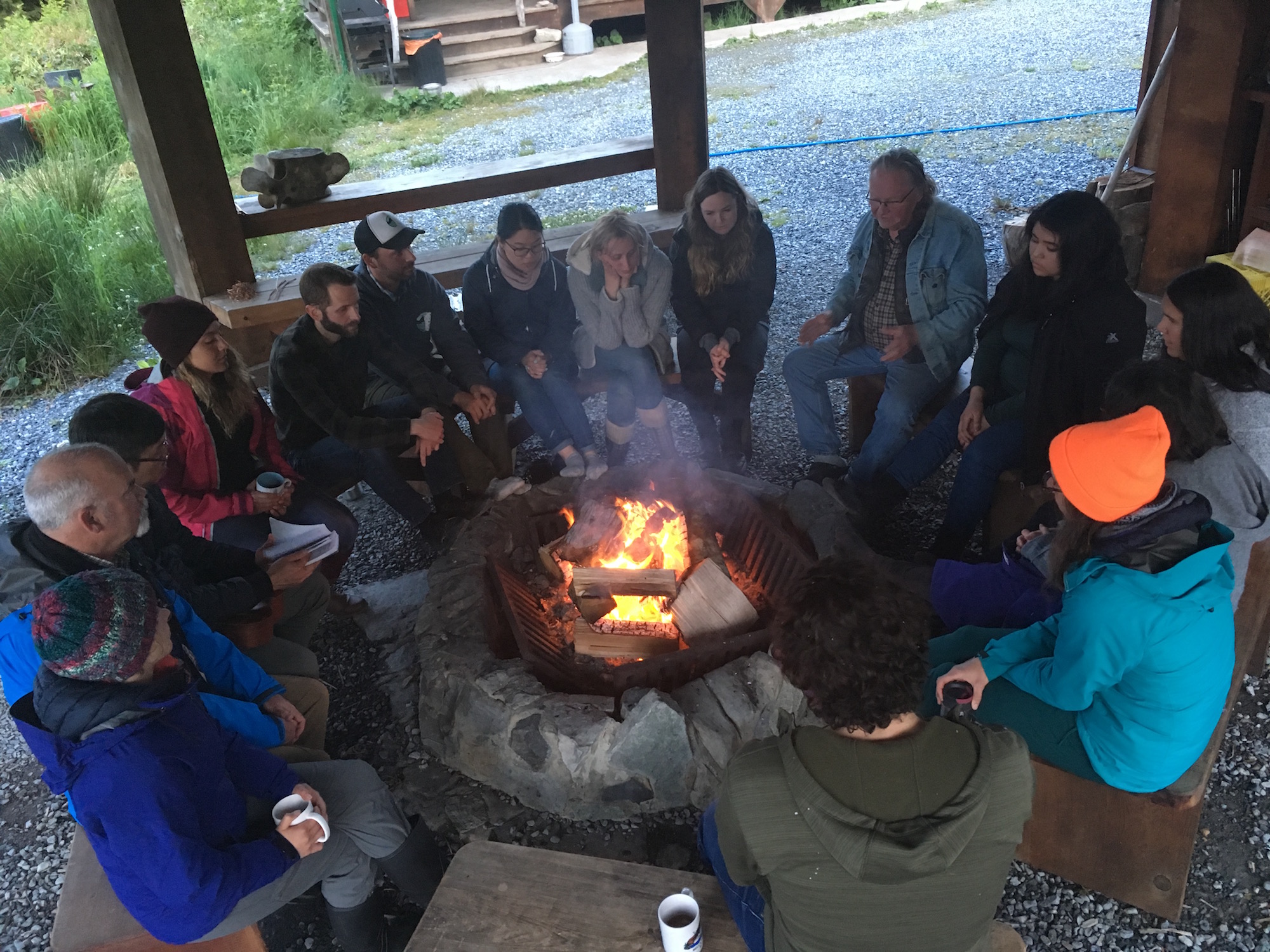
Hello, my name is Helen Copeland. I am a descendent of the P’egp’ig’lha (frog) people, from T’ít’q’et community, one of eleven Indigenous communities that make up St’át’imc Nation. I started working for West Coast Environmental Law in January 2020 as the Program Manager for RELAW (Revitalizing Indigenous Law for Land, Air and Water). You can learn more about the journey that led me to take this role here.
Since joining West Coast, I have been speaking with many RELAW partners about their work to revitalize and apply their Indigenous laws, and I wanted to share some updates about ongoing RELAW projects.
 Lower Fraser Fisheries Alliance
Lower Fraser Fisheries Alliance
The RELAW project is partnered with the Lower Fraser Fisheries Alliance (LFFA), a voice for the First Nations of the Lower Fraser River relating to their inherent rights to fisheries. During a year in which some fishing openings were measured in hours, not days the LFFA nations are looking to their own laws about watershed management and fisheries governance for direction and solutions. This past year, the LFFA-RELAW team of Leah Ballantyne (LFFA coordinator), Rayanna Seymour-Hourie and Jessica Clogg (from West Coast) focussed on reading, sharing and discussing the sxwōxwiyám (stories/oral histories from the distant past), with dialogue among Elders, Knowledge Holders and LFFA members. The LFFA-RELAW team is currently completing a Legal Synthesis Report, which consolidates the year-long learning of what stories, both sxwōxwiyám and sqwélqwel (“true stories”) and Elders' knowledge teaches us about Indigenous laws related to watershed management and fisheries governance in the Lower Fraser.
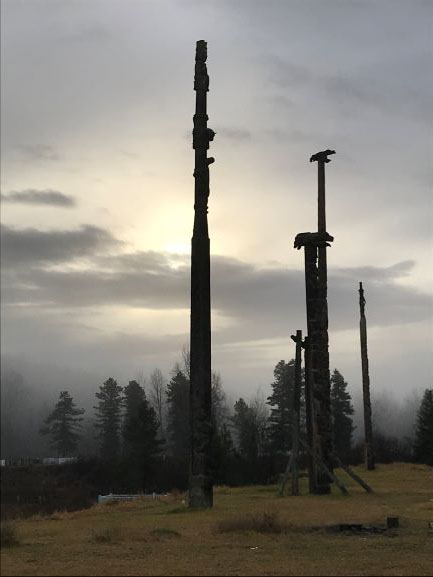 Gitanyow Hereditary Chiefs
Gitanyow Hereditary Chiefs
The Lax’yip (territories) of the Gitanyow peoples are located in the middle-Nass Watershed and upper Skeena Watershed (Kitwanga and Kispiox Rivers). As a matter of Gitanyow Ayookxw (law), the Simgigyet (hereditary chiefs) have the right and responsibility to possess, manage, protect, and pass on the land and water of their Wilp territories in a sustainable manner from generation to generation. This responsibility to protect land and resources for present and future generations provides the foundation for the integrated social, ecological, economic, legal and cultural system of the Gitanyow.
In order to ensure that projects and activities in their territories uphold Wilp sustainability, the Gitanyow Hereditary Chiefs are creating their own assessment process that reflects the Ayookxw. Lawyers from West Coast Environmental Law are providing legal assistance with the development of this Wilp Sustainability Assessment Process.
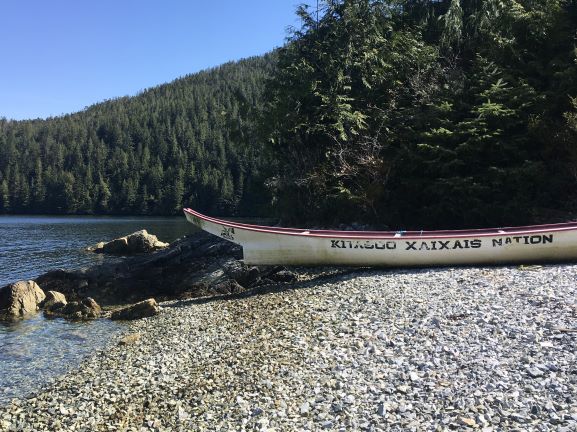 Kitasoo/Xai’xais First Nation
Kitasoo/Xai’xais First Nation
The Kitasoo/Xai’xais are concerned about the rapid decline of fish populations in their territory. This decline has been caused by over-fishing allowed by DFO management that does not consider Kitasoo/Xai’xais laws. Through the RELAW project, they are explaining why key food fish areas identified during the Kitasoo/Xai’xais’ marine use planning process in the 2000s need to be protected from over-fishing. These rationale documents will be used as roadmaps to help incorporate Kitasoo/Xai’xais knowledge and law into future planning.
This work builds on an earlier Kitasoo/Xai’xais RELAW Project focused on developing a management plan for an Indigenous protected area in Kitasu Bay grounded in Kitasoo/Xai’xais law.
Kitasu Bay is the breadbasket of the Kitasoo/Xai’xais Nation in Klemtu. The Kitasoo have inhabited and protected the area since time immemorial. Unfortunately, colonial fisheries management has resulted in steep declines in many important species including abalone, herring, and salmon; threatening the survival of the ecosystem and the people that depend on it. While many direct actions have taken place over the years to directly counter poor management decisions, it is time for a lasting solution. The Kitasoo/Xai’xais believe that one of the key reasons for the poor management decisions and subsequent decline is the inappropriateness of the values on which current management is based. To remedy the issue, the Kitasoo/Xai’xais Nation worked with West Coast Environmental Law to develop a management plan based on the core values of Kitasoo/Xai’xai law. This plan will inform the management of the Kitasu Bay Indigenous Protected Area that will be enacted first under Kitasoo/Xai’xais law, and later under Canadian law.
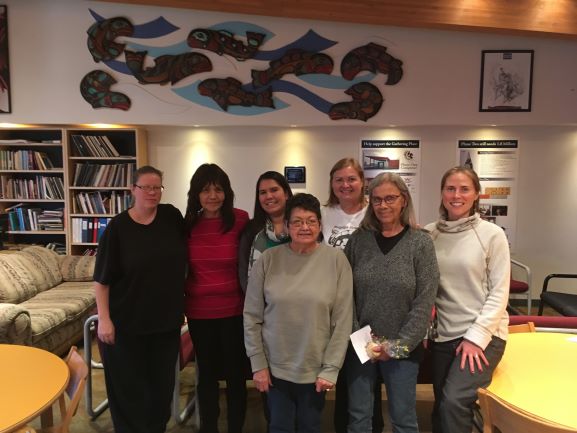 Haíɫzaqv (Heiltsuk) Tribal Council
Haíɫzaqv (Heiltsuk) Tribal Council
The Haíɫzaqv (Heiltsuk) Tribal Council is engaged in many governance building processes to uphold their jurisdiction over their territory, as their ancestors have done for the past 14,000 years. The work of marine governance is supported by the staff at the Haíɫzaqv Integrated Resource Management Department. In September 2017 the Haíɫzaqv began working on a RELAW project with the goal to create legislation that will be enacted under the forthcoming Haíɫzaqv Constitution. Given the importance of the ocean in Haíɫzaqv society, leadership identified the need to have an Oceans Act rooted in their own ğvi̓las/laws.
The Haíɫzaqv RELAW team engaged in intensive research on Haíɫzaqv ğvi̓las/law and talked to many citizens to learn how to structure a written piece of legislation that can uphold Haíɫzaqv marine jurisdiction and governance practices. The working title for the Haíɫzaqv Nation Oceans Act is, H̓aíkilaxsi c̓isḷá w̓áw̓áx̌tusa gáyáqḷa qṇts dṃxsax̌v: Respecting and Taking Care of our Ocean Relatives. This work will be ongoing and extend beyond the RELAW Project.
Revitalizing Haíɫzaqv Law for Land, Air and Water: Telling the RELAW Story is a short booklet that describes the Haíɫzaqv RELAW journey, who was involved and what the outcomes were. You can also learn more in this blog and video about the Haíɫzaqv RELAW project.
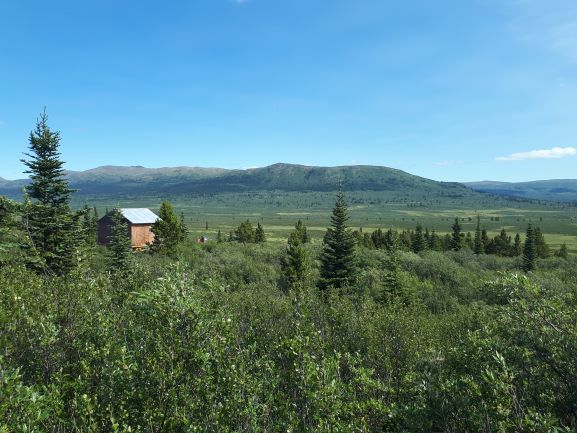 Taku River Tlingit First Nation
Taku River Tlingit First Nation
Taku River Tlingit First Nation’s vision for revitalizing Taku River Tlingit law has continued to grow and deepen since the Nation began its RELAW project in 2017, based in the knowledge that Taku River Tlingit law is living law that can and should be taught, learned and used every day. Recognizing that revitalizing Indigenous law is not just a legal project but also a healing journey, Taku River Tlingit First Nation is conducting this work in a way that puts the needs of the community first and ensures that the teachings of Tlingit people are followed each step of the way. With support from the T’akhu Á Tlén Conservancy and West Coast Environmental Law, key areas of focus for Taku River Tlingit First Nation’s RELAW work in the coming year include a Tlingit law camp, exploring the integration of Tlingit legal education with ongoing Tlingit language courses in the community, and engaging citizens on a draft written statement of Taku River Tlingit legal principles.
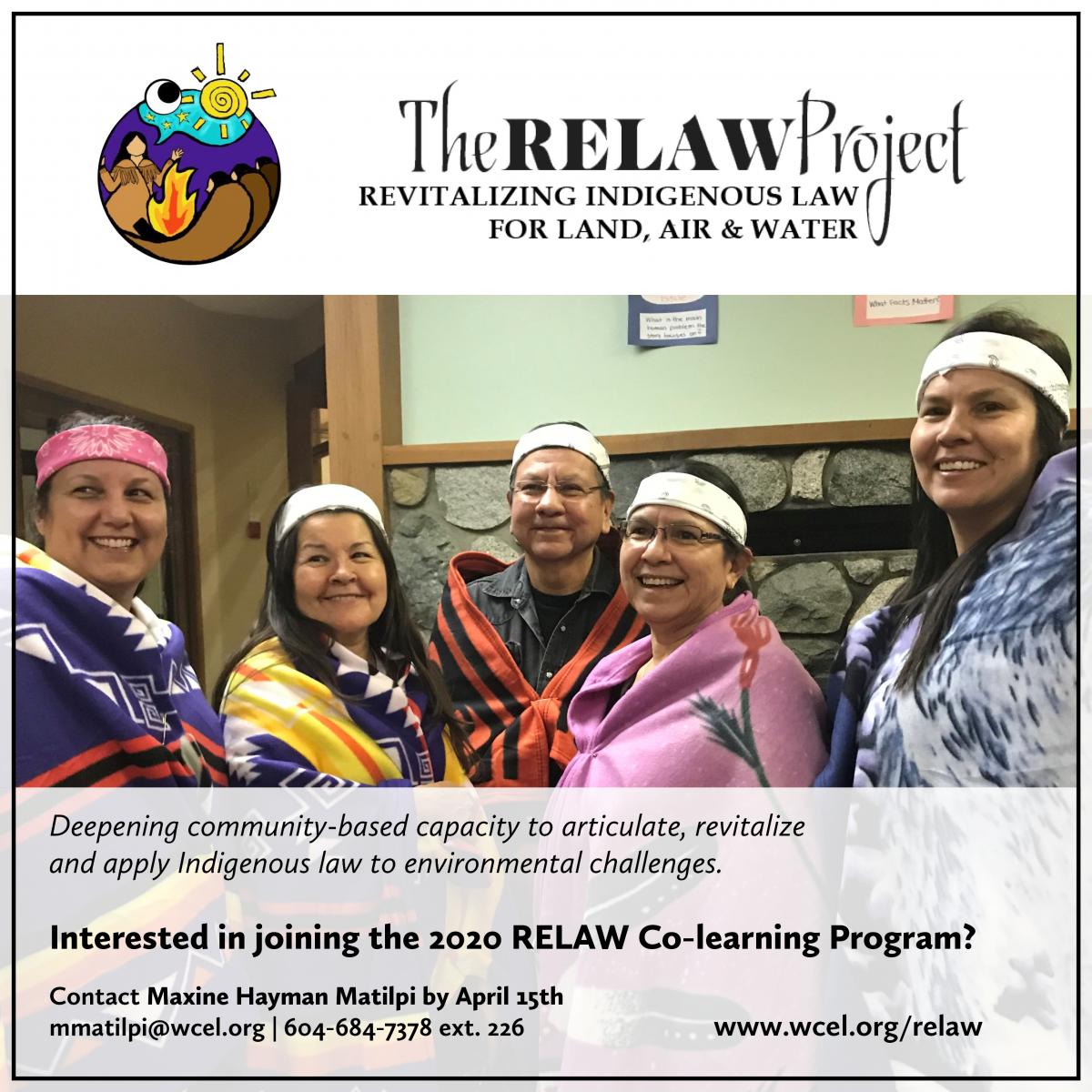
How to get involved
Indigenous nations interested in developing a RELAW project may contact West Coast at any time. We will explore what your goals are and whether our legal team has the right capacity and expertise to contribute to your vision for Indigenous law revitalization.
RELAW projects are undertaken collaboratively by a team made up of legally trained staff from West Coast and community-based staff or contractors from Indigenous nations. A year-long RELAW Co-learning Program provides mentorship and learning opportunities for team members.
Nations are also welcome to nominate one or more individuals to participate in the RELAW Co-learning Program without undertaking a full RELAW Learning Partnership Project. You may wish to consider doing so if, for example:
- you would like to learn more before exploring a RELAW project;
- your nation is moving forward on work to revitalize its ancestral laws but does not require the support of a lawyer;
- your nation is working on revitalizing its laws in areas other than environmental law such as criminal or children and families.
The RELAW 2020-21 Co-learning Program is expected to run from May 2020 – April 2021. Space is limited and first consideration will be given to applications received by April 15, 2020. Please consider joining us!
Top photo: RELAW Retreat at Koeye (Credit: Georgia Lloyd-Smith)